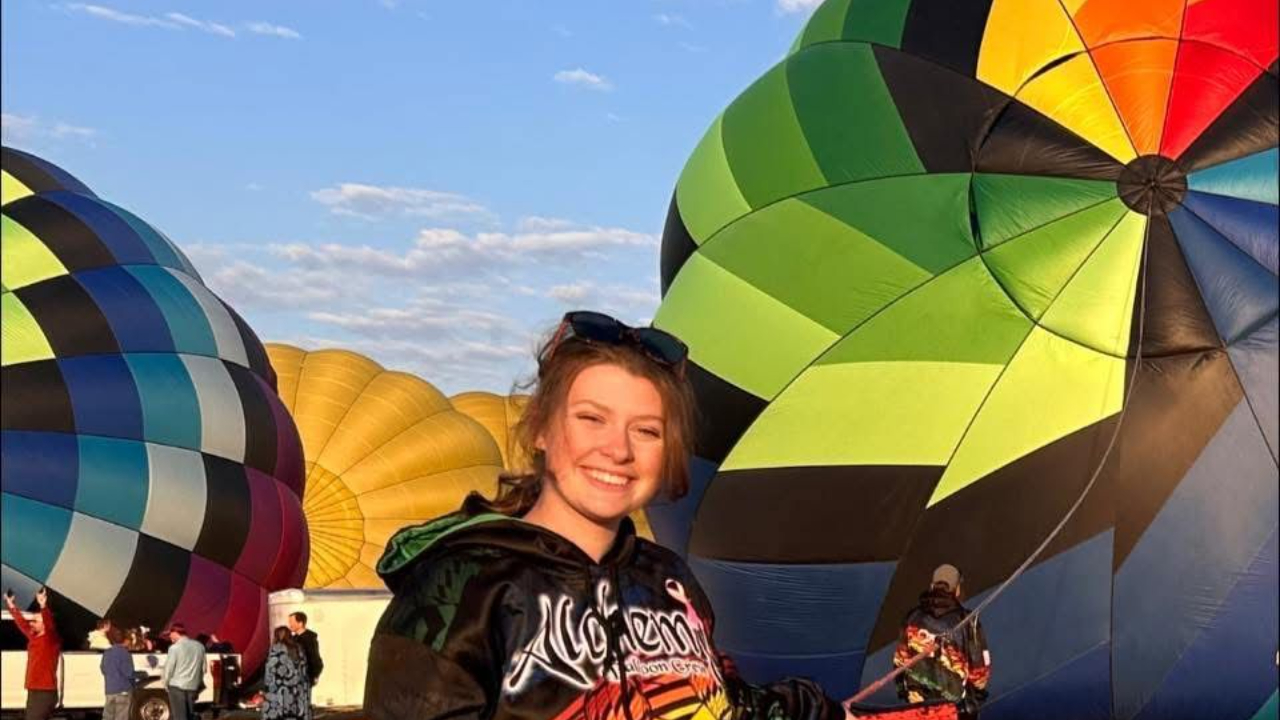The Hardest Thing About Letting Go (And Why We Resist It)

Part of me wants to keep my kids close.
Safe. Protected from pain and suffering.
I love them so much. And watching them navigate the world—flying across the country alone, going up in hot air balloons, dating in this culture—is sometimes really painful.
For a long time, I thought this was just what good parenting looked like: wanting to protect your children from harm.
But then I realized something that changed everything.
The Truth I Had to Admit
It's not just about protecting them. It's about protecting me from the pain and suffering I feel when they struggle.
It's self-protective.
My brain is doing what it's designed to do: avoid pain.
The pain of watching people I love make mistakes, take risks, get hurt. The pain of not being able to control outcomes. The pain of letting go.
And this is where the motivational triad—the three ancient drives that run in the background of your brain—shows up in the most unexpected places.
How Your Brain Keeps You "Safe"
The motivational triad describes three core survival drives:
- Avoid pain
- Conserve energy
- Seek pleasure
These instincts kept our ancestors alive. But in modern relationships, they can keep us stuck in patterns that don't serve us—or the people we love.
When I want to keep my kids close, my brain isn't being protective. It's being self-protective.
It's trying to avoid the pain I feel when they're out in the world navigating risk, uncertainty, and inevitable failures.
The Cost of Choosing Comfort
Here's what I realized:
Their lives are not mine. They are theirs to live.
And if I let my brain's need for comfort run the show, I won't just be holding them back—I'll be robbing myself of the privilege of being part of their actual lives.
The version of them I get to have a relationship with isn't the one I keep safe and small. It's the one I let fly—even when it's terrifying.
But to do that, I have to do my own work.
I have to stop letting my discomfort make their decisions.
The Shift That Changed Everything
I stopped trying to fight my brain. I stopped trying to manufacture calm or confidence or some zen-like acceptance.
Instead, I just started acknowledging what was happening:
"Oh. There's my brain trying to keep me comfortable by keeping them close."
"This anxiety isn't a sign something's wrong. It's just my nervous system trying to protect me from feeling pain."
"Their growth means my discomfort. And that's okay."
And then I let them go anyway.
This is how you retrain your nervous system.
You don't need to eliminate the discomfort. You just need to stop letting it make your decisions.
Where Else This Shows Up
Once I saw this pattern with my kids, I started seeing it everywhere:
- The friend I stopped reaching out to because they disappointed me once (avoiding the pain of potential disappointment again)
- The feedback I didn't give because it might create tension (avoiding the pain of conflict)
- The boundaries I didn't set because it might hurt someone's feelings (avoiding the pain of their reaction)
In every case, I was choosing my comfort over the relationship.
I was letting my brain's need to avoid pain run the show—even when that avoidance was creating more pain in the long run.
The Pattern in Your Life
Think about your own relationships.
Where are you choosing your comfort over someone else's growth?
Where are you holding someone back—not because they can't handle it, but because you can't handle watching them struggle?
Where are you avoiding difficult conversations, necessary boundaries, or healthy separation because your brain is trying to protect you from emotional discomfort?
This isn't about being cold or detached. It's about recognizing that real love sometimes requires us to feel uncomfortable.
To let people fail. To let them figure it out. To watch them struggle without rescuing them.
Not because we don't care, but because we care enough to let them have their own lives.
The Practice
I still feel the pull to keep my kids close. To protect them from every possible pain.
But now? I recognize it as information, not instruction.
The discomfort doesn't mean "don't let them go." It just means "your brain is trying to protect you."
And then I let them go anyway.
Here's what I remind myself:
"This resistance isn't danger; it's my brain trying to protect me."
"Their growth is more important than my comfort."
"Discomfort doesn't mean I'm doing it wrong. It means I'm doing it right."
When you repeatedly choose what's right over what's comfortable—in parenting, in friendships, in any relationship—your brain starts to learn a new truth:
Love doesn't mean eliminating discomfort. It means being willing to feel it.
Your Move
What would become possible in your relationships if you stopped letting your discomfort make the decisions?
Who in your life needs you to let them fly—even when it's hard for you to watch?
What conversation, boundary, or release have you been avoiding because your brain is keeping you "safe"?
Growth—yours and theirs—is worth the discomfort.
Pick one relationship. One place where you're choosing your comfort over their growth.
And choose differently this week.
Working through your own patterns of resistance? Book your spot, grab a package, or let's just talk for 20 minutes—on me. Schedule here


